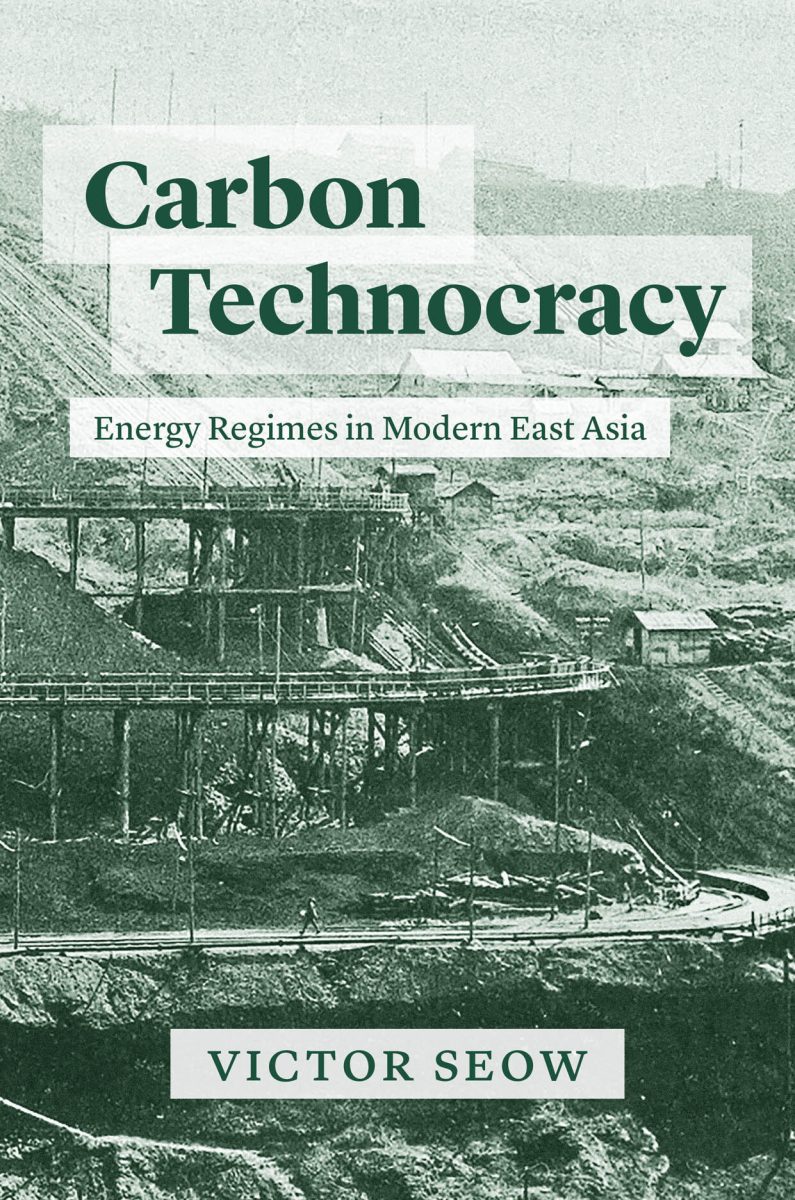On Monday, science and technology historian and Harvard professor Victor Seow held a talk at Tanner Humanities Center on how Japan and various Chinese states’ control of the coal-mining town Fushun aided the rise of the modern technocratic state in the early twentieth century. Fushun is located in China, north of the North Korean border.
During his presentation, Seow showed the audience a 1930s postcard with a photo of Fushun’s vast and excavated coal mine. The postcard contained a Japanese phrase that Seow said roughly translates to “limitless treasure hunts.”
“This sense of limitless wealth … I think, sums up the sentiment that many Japanese in the first half of the 20th century had toward coal mining at this site,” Seow said. He said subsequent Chinese regimes shared the sentiment, and it informed the vast scale of the mining operation.
Seow said this faith in limitless resources was met with a fear of scarcity, a tension that defines the modern day.
“I think it’s a kind of tension and contradiction that persists even as we think about renewables and alternatives to fossil fuels,” he said.
The rise of fossil fuels has become a growing interest among scholars amid the ongoing climate crisis.
“Historians … generally believe that if we have any hope of finding solutions to these problems, we need to understand how they came to be,” Seow said.
The talk was based on Seow’s book “Carbon Technocracy: Energy Regimes in Modern East Asia.” The book has three main threads. These include the state’s role in the energy economy, imperial industrialization and the legacy of economic empire. It also includes technology, labor and extractivism.
Imperial Industrialization and the Economic Legacies of Empire
Japan’s empire fell with the end of World War II. After the Soviets looted the Fushun mine during their post-war occupation, control of the mine quickly shifted hands to the Chinese nationalists. It then went to the People’s Republic of China after the 1949 revolution.
China’s post-industrialization maintained some continuity with Japan’s fallen empire. Some 100,000 engineers and technicians remained in northern China until 1954, according to Seow. These experts were vital to restarting production.
Japanese contributions to China’s post-1949 industrialization may first appear like an “inconvenient truth” for people who are opposed to colonialism. However, Seow stressed that post-colonial industrial expansion did not provide positive outcomes for most of the local population.
“We can then acknowledge Japan’s positive economic impact on Manchuria without celebrating it,” he said.
Technology, Labor and Extractivism
Labor activism increased at the end of the First World War in Europe due to the “specter” of socialism from the Bolshevik Revolution. Japan also saw a rise in labor activism. Seow highlighted the rice riots of 1918 as a specific case of increased labor discontent in Japan.
Japan’s interest in expanding technological development in the mines was in part due to its desire to reduce the need for labor. At the time, Fushun’s mine expansion had doubled the workforce.
“Yet for all its efforts at mobilizing machines, the colliery didn’t seem to truly diminish its dependence on labor, and as targeted production rose from year to year, this industrial apparatus continually required tens of thousands of workers to keep their calls turning,” Seow said.
The increasing need for labor at Fushun’s colliery exposed more miners to dangerous conditions. This would continue into China’s communist era.
Fushun was once the largest coal-mining town in East Asia. In modern times, Fushun has mostly de-industrialized, and its vast colliery has turned into a tourist attraction. But, Seow contends its history should not be ignored because it reflects some of our current systemic problems.
“Mines like Fushun … are worth paying attention to not only because they fuel the appetites and ambitions of states, but also because they serve as microcosms of the systems they sustain,” Seow said.
The State in the Fossil Fuel Industry
When researchers examine the origins of the fossil fuel industry, they tend to focus on the dynamics of capitalism, the actions of industrialists or the habits of consumers, Seow said. But, the state’s role is often overlooked.
Numerous state aims have bolstered energy resources. This includes the desire for economic growth and regional warfare.
“In their eagerness to excavate and exploit these fossil fuels, many states have become committed to efforts in, and have continued to be committed to, efforts at energy extraction that were extravagant as they were extensive,” Seow said.
To illustrate the state’s extravagant energy extraction efforts, Seow showed the audience an image of Mao Zedong visiting the Fushun coal mine on the precipice of his disastrous Great Leap Forward campaign.
“One of the things I’ve sought to do in telling this story is not view it as some kind of Chinese socialist aberration … but show how [other] modern states were similarly engaged in such extractive behavior,” he said.



